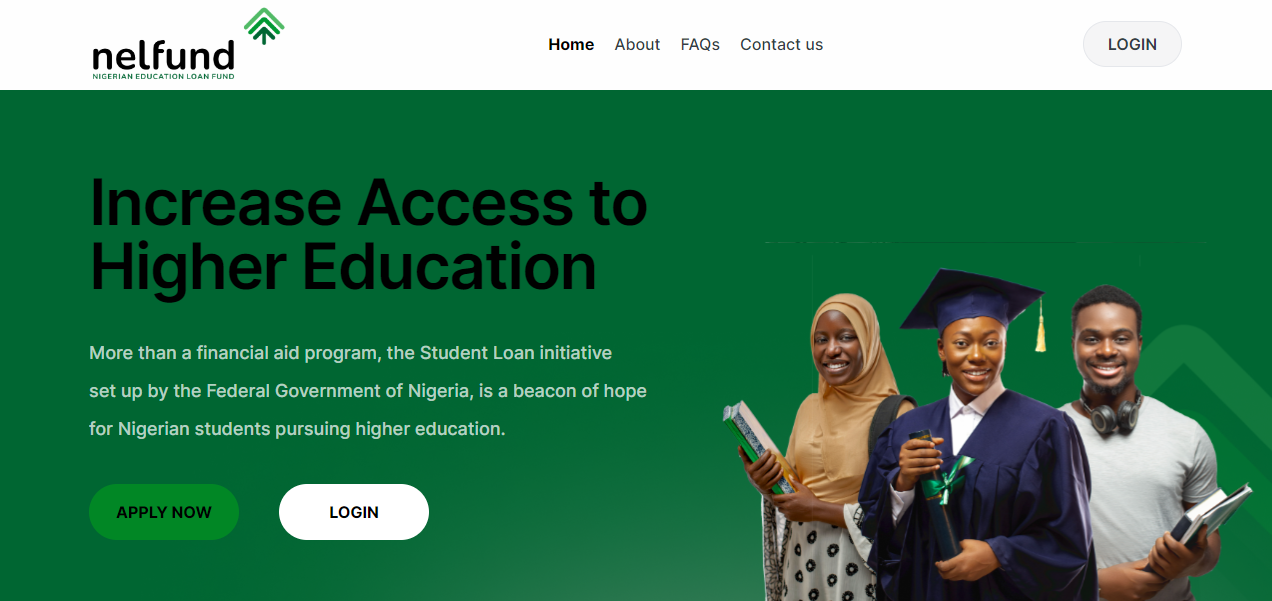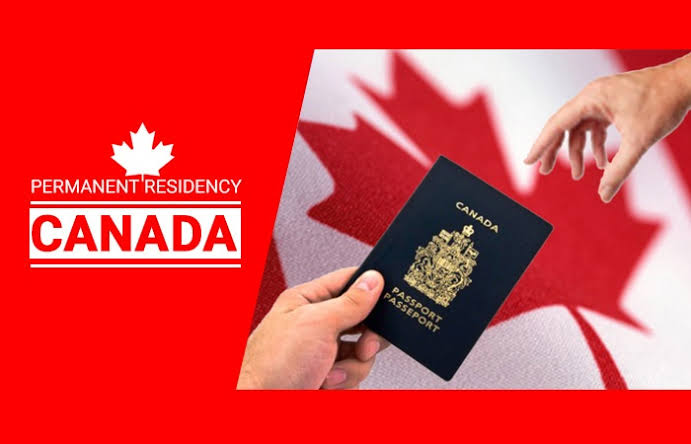The United States remains one of the top destinations for international workers seeking to build a career and achieve financial stability. With visa sponsorship programs, U.S. employers can hire skilled and unskilled foreign workers, enabling them to live and work legally in the country. For many international job seekers, $25k U.S. visa sponsorship opportunities in 2025 represent an accessible entry point into the U.S. job market.
Roles offering $25k annually cater to entry-level positions or industries experiencing labor shortages, such as hospitality, agriculture, customer service, and construction. While these positions may require fewer qualifications than higher-paying roles, they offer an excellent opportunity for workers to gain U.S. work experience, earn a steady income, and potentially transition to higher-paying positions in the future.
This guide will explore the importance of visa sponsorship, the types of visas available, qualifications needed, and actionable strategies to secure a $25k U.S. visa sponsorship job in 2025.
Why Visa Sponsorship is Essential
Visa sponsorship is a critical pathway for international workers to legally work in the United States. It benefits both employers and employees by facilitating a structured hiring process while ensuring compliance with immigration laws.
The Importance of Visa Sponsorship for Job Seekers
- Legal Work Authorization: Without visa sponsorship, international workers cannot legally work in the United States. Sponsorship ensures compliance with U.S. immigration laws.
- Relocation Support: Many employers offering visa sponsorship assist workers with relocation expenses and settling into the U.S., easing the transition.
- Pathway to Residency: Certain visas provide opportunities for workers to eventually apply for permanent residency or citizenship.
- Stable Employment: Sponsored jobs are often tied to longer-term contracts, providing job security and stability.
 The Benefits of Visa Sponsorship for Employers
The Benefits of Visa Sponsorship for Employers
- Access to a Global Talent Pool: Visa sponsorship allows employers to address labor shortages by hiring skilled and motivated workers from around the world.
- Diversity and Innovation: Employing international workers fosters workplace diversity, which can lead to enhanced creativity and problem-solving.
- Meeting Industry Needs: Sectors like agriculture, hospitality, and healthcare often rely on foreign workers to maintain productivity levels.
Visa sponsorship acts as a bridge between international talent and U.S. employers, creating opportunities that benefit both parties.
Key U.S. Visa Sponsorship Types for Job Seekers
Different visa categories allow U.S. employers to hire foreign workers based on job requirements and skill levels. Understanding these options can help you identify the best pathway to secure a $25k U.S. visa-sponsored job.
H-2B Visa: Temporary Non-Agricultural Workers
- Purpose: Designed for roles in industries like hospitality, construction, landscaping, and manufacturing.
- Duration: Allows foreign workers to stay in the U.S. for temporary periods, typically up to one year, with extensions possible.
- Eligibility: No advanced qualifications are required for many H-2B roles, making this visa ideal for $25k jobs.
H-2A Visa: Agricultural Workers
- Purpose: Enables U.S. employers to hire foreign workers for seasonal agricultural jobs, such as farming, harvesting, and planting.
- Duration: Typically tied to the agricultural season, with contracts lasting up to 10 months.
- Benefits: Employers often provide free housing and transportation to workers.
J-1 Visa: Exchange Visitor Program
- Purpose: Used for cultural exchange programs, including internships, training, and work-study opportunities.
- Eligibility: Ideal for entry-level roles in hospitality, education, or agriculture, especially for younger workers seeking U.S. experience.
O-1 Visa: Extraordinary Ability
- Purpose: For individuals with exceptional talent in fields like the arts, education, and sciences.
- Relevance for $25k Jobs: While this visa is primarily for high-level professionals, entry-level artists or educators may qualify for certain roles.
EB-3 Visa: Skilled and Unskilled Workers
- Purpose: Provides a direct path to permanent residency for both skilled and unskilled workers.
- Ideal for $25k Roles: Unskilled workers can apply for positions such as cleaners, maintenance workers, and food service staff.
Understanding the nuances of these visa types will help you choose the most appropriate category based on your skills and career goals.
Who Qualifies for U.S. Visa Sponsorship?
Eligibility for visa sponsorship depends on a combination of job requirements, employer preferences, and U.S. immigration policies.
General Qualifications for Workers
- Work Experience: While some roles require specific experience, many entry-level positions only demand a willingness to learn and perform tasks effectively.
- Education: Most $25k jobs require a high school diploma or equivalent, although some may waive this requirement for unskilled labor roles.
- Language Proficiency: Basic English skills are often necessary to communicate with coworkers and supervisors.
- Physical Fitness: Certain roles, especially in agriculture or construction, require physical stamina and the ability to perform manual labor.
Employer-Specific Requirements
Employers sponsoring visas must demonstrate that hiring a foreign worker will not negatively impact the U.S. labor market. This involves:
- Labor Certification: Employers must prove there are no qualified local candidates for the position.
- Job Offer Letter: Applicants must have a formal job offer detailing the role, salary, and visa sponsorship terms.
Industries with High Sponsorship Potential
- Hospitality and Tourism: Positions like hotel attendants, restaurant servers, and maintenance staff often qualify for sponsorship.
- Agriculture: Seasonal farm labor is consistently in demand, offering numerous opportunities for foreign workers.
- Construction: Labor shortages in construction have led to an increased reliance on visa sponsorship for roles like site cleaners and general laborers.
Meeting these qualifications will help you stand out as a candidate for U.S. visa sponsorship opportunities in 2025.
How to Find U.S. Visa Sponsorship Opportunities
Finding a $25k U.S. visa sponsorship opportunity in 2025 requires a proactive and strategic approach. Employers offering sponsorship are often located in industries with labor shortages, and knowing where to look can make a significant difference in your job search.
Research Sponsoring Companies
Focus your search on companies that are known for sponsoring international workers.
- Databases of Sponsoring Employers: Platforms like MyVisaJobs and H1BGrader provide lists of U.S. employers who have a history of sponsoring visas.
- Industries with Labor Gaps: Target sectors like hospitality, agriculture, and construction, where demand for foreign workers is high.
- Multinational Corporations: Large companies like Hilton, Marriott, and Walmart often hire entry-level workers and provide visa sponsorship.
Use Job Boards and Online Platforms
Online job boards are excellent resources for finding visa-sponsored roles.
- Indeed and Glassdoor: Search for roles that mention “visa sponsorship” in the job description.
- LinkedIn: Use advanced search filters to identify companies offering sponsorship and connect with recruiters.
- Specialized Job Portals: Websites like SimplyHired and CareerOneStop often list visa sponsorship opportunities tailored to international workers.
Leverage Social Media and Networking
Building connections through social media can reveal hidden job opportunities.
- LinkedIn Networking: Join groups related to your industry and engage with posts to connect with professionals and recruiters.
- Facebook Groups: Look for communities focused on international job seekers or specific industries, such as “U.S. Visa Jobs for Foreigners.”
- Professional Forums: Participate in industry-specific forums or online communities to learn about openings and hiring trends.
Apply Through Recruitment Agencies
Recruitment agencies can help connect you with employers offering visa sponsorship.
- Specialized Agencies: Agencies focusing on hospitality, agriculture, or seasonal work are more likely to have visa-sponsored roles.
- Regional Agencies: Some agencies work closely with employers in specific states or regions facing labor shortages, such as California or Texas.
Contact Employers Directly
Reaching out to potential employers can sometimes yield positive results.
- Company Career Pages: Many companies post job openings with sponsorship details directly on their websites.
- Cold Emails: Send a professional email to HR departments, expressing your interest in working for the company and your eligibility for visa sponsorship.
- Walk-In Applications: If you’re already in the U.S. on a valid visa, visiting employers in person can demonstrate your enthusiasm and availability.
Focus on Industries Known for Sponsorship
Certain sectors are more likely to offer visa sponsorship for $25k roles:
- Agriculture: Seasonal farm work often comes with housing and transportation benefits.
- Hospitality: Hotels, resorts, and restaurants frequently hire international workers.
- Retail: Large retail chains sometimes sponsor visas for store associates and stockroom staff.
By using these strategies, you can uncover a wide range of $25k U.S. visa sponsorship opportunities and position yourself as a strong candidate.
Enhancing Your Marketability for U.S. Jobs
To secure a visa-sponsored role, you must stand out among other applicants by showcasing your skills, experience, and adaptability.
Highlight Relevant Skills
Focus on skills that align with the job you’re applying for.
- Customer Service Skills: Essential for hospitality, retail, and tourism roles.
- Physical Stamina: Particularly important for agricultural and construction jobs.
- Multitasking and Time Management: Employers value workers who can handle multiple tasks efficiently.
Pursue Certifications and Training
Obtaining relevant certifications can boost your qualifications.
- Hospitality Certification: Courses in food safety, housekeeping, or customer service can improve your chances of securing a role in this sector.
- Agricultural Training: Training in farm equipment handling or pesticide use can make you a more competitive candidate for agricultural roles.
- English Language Proficiency: Passing English proficiency tests like TOEFL or IELTS demonstrates your ability to communicate effectively.
Tailor Your Application Materials
Customizing your application materials to match the job requirements is crucial.
- Resume: Highlight your relevant skills, past experience, and willingness to relocate.
- Cover Letter: Use the cover letter to explain why you’re the perfect fit for the role and how you can contribute to the employer’s success.
Build a Professional Online Presence
Your online presence can influence an employer’s perception of you.
- LinkedIn Profile: Update your profile with detailed work history and relevant keywords, such as “visa sponsorship” or “international job seeker.”
- Portfolio: Create a portfolio of your work, especially if you’re applying for creative or technical roles.
Demonstrate Flexibility and Adaptability
Employers value candidates who are willing to adapt to new environments and take on challenges.
- Willingness to Relocate: Highlight your openness to moving to areas where labor shortages are most acute.
- Adaptability: Showcase your ability to learn quickly and adjust to different workplace cultures.
By enhancing your marketability, you can significantly increase your chances of securing a $25k U.S. visa-sponsored job in 2025.
Required Documents for U.S. Visa Sponsorship
When applying for a $25k U.S. visa sponsorship opportunity in 2025, ensuring that your documents are complete and accurate is critical to the success of your application. Employers and U.S. immigration authorities require specific paperwork to verify your eligibility and comply with visa regulations.
Documents Needed from the Employer
Employers sponsoring foreign workers must provide evidence that they are legally permitted to offer visa sponsorship. The following documents are typically required:
- Job Offer Letter: A formal letter specifying the job title, salary (minimum $25k), job description, and terms of employment.
- Labor Certification Approval: For certain visas, such as the H-2B or EB-3, employers must obtain certification from the U.S. Department of Labor to prove that hiring a foreign worker won’t negatively impact the local labor market.
- Form I-129 (Petition for Nonimmigrant Worker): Employers submit this form to the U.S. Citizenship and Immigration Services (USCIS) to sponsor a foreign worker.
- Proof of Business Legitimacy: Documentation such as tax returns, business licenses, and company financial records to confirm the employer’s ability to pay the offered salary.
Documents Needed from the Applicant
As a job seeker, you’ll need to prepare the following documents to support your visa application:
- Valid Passport: Ensure that your passport is valid for at least six months beyond your intended stay in the U.S.
- Educational Certificates: High school diplomas, vocational training certificates, or any other qualifications relevant to the job.
- Work Experience Letters: Letters from previous employers detailing your job roles, responsibilities, and duration of employment.
- English Proficiency Test Results: While not always mandatory, submitting TOEFL or IELTS scores can strengthen your application.
- Updated Resume and Cover Letter: Tailored to the role you are applying for, highlighting relevant experience and skills.
- Visa Application Form (DS-160): For nonimmigrant visa applications, you must complete and submit the DS-160 form online.
Additional Documents for Visa-Specific Requirements
Depending on the type of visa, additional documents may be required:
- H-2B or H-2A Visa: Proof of seasonal work demand or an employment contract outlining start and end dates.
- J-1 Visa: Evidence of participation in an approved exchange visitor program, including sponsorship documents from a designated program sponsor.
- EB-3 Visa: Documentation demonstrating your eligibility as an unskilled worker, such as proof of prior experience in the relevant industry.
Preparing for the Visa Interview
The visa interview is a critical step in the sponsorship process, and you may be asked to provide additional documentation, such as:
- Visa Fee Payment Receipt: Proof that you’ve paid the required visa application fee.
- Photographs: Recent passport-sized photos meeting U.S. visa specifications.
- Proof of Intent to Return: For nonimmigrant visas, you may need to provide evidence of ties to your home country, such as property ownership or family connections.
Documents for Dependents
If you plan to bring family members with you, additional paperwork will be necessary:
- Marriage Certificate: If your spouse is accompanying you.
- Birth Certificates: For any dependent children.
- Dependent Visa Applications: Completed applications for each family member, along with supporting documents.
By gathering and organizing these documents in advance, you can streamline the application process and increase your chances of a successful visa sponsorship approval.
Top U.S. Industries Offering Visa Sponsorship
Certain industries in the U.S. frequently offer visa sponsorship due to labor shortages and high demand for workers. For $25k roles, these industries are particularly active in recruiting international talent.
Hospitality and Tourism
- Demand: Hotels, resorts, and restaurants often face staffing shortages, especially in customer service and maintenance roles.
- Common Roles: Housekeepers, servers, cooks, and front desk attendants.
- Sponsoring Employers: Chains like Hilton, Marriott, and regional hospitality groups regularly hire international workers.
Agriculture
- Demand: Seasonal farming jobs, such as harvesting and planting, require a large workforce to meet production needs.
- Common Roles: Farm laborers, fruit pickers, and equipment operators.
- Sponsoring Employers: Agricultural cooperatives and private farms frequently offer visa sponsorship under the H-2A program.
Retail and Warehousing
- Demand: Retail and logistics industries rely on workers for stock management, inventory, and customer service.
- Common Roles: Cashiers, stockroom staff, and warehouse workers.
- Sponsoring Employers: Companies like Walmart, Target, and Amazon are known for hiring in these areas.
Construction
- Demand: Infrastructure projects and housing developments create a need for general laborers and maintenance staff.
- Common Roles: Site cleaners, construction laborers, and equipment handlers.
- Sponsoring Employers: Regional contractors and national construction firms often recruit through H-2B visas.
Seasonal Industries
- Demand: Industries such as landscaping, holiday retail, and festival management require temporary workers during peak seasons.
- Common Roles: Event staff, groundskeepers, and delivery drivers.
- Sponsoring Employers: Seasonal employers partner with recruitment agencies to source international workers.
By focusing on these industries, you can identify employers that are more likely to offer visa sponsorship for $25k roles in 2025.
The Role of Recruitment Agencies in Securing U.S. Visa Sponsorship
Recruitment agencies can play a pivotal role in helping international workers secure $25k U.S. visa sponsorship opportunities in 2025. These agencies act as intermediaries between job seekers and employers, streamlining the hiring process for both parties. For candidates unfamiliar with U.S. immigration processes or job market trends, working with a recruitment agency can significantly improve their chances of finding a visa-sponsored role.
How Recruitment Agencies Help
Recruitment agencies offer several benefits to job seekers:
- Access to Exclusive Opportunities: Many U.S. employers rely on recruitment agencies to fill visa-sponsored roles, meaning some positions may not be advertised publicly.
- Guidance Through the Visa Process: Agencies familiar with U.S. visa sponsorship procedures can guide you through each step, ensuring that your application meets the necessary requirements.
- Job Matching: Agencies match candidates with roles that align with their skills, experience, and career goals, increasing the likelihood of a successful placement.
- Resume and Interview Preparation: Recruitment agencies often help candidates optimize their resumes and prepare for interviews to meet U.S. employer expectations.
- Relocation Support: Many agencies assist candidates with relocation logistics, including finding housing, understanding local transportation, and acclimating to life in the U.S.
- Negotiation Assistance: Agencies can help negotiate job terms, such as salary, benefits, and visa sponsorship conditions, ensuring you secure fair and favorable employment terms.
Why Employers Use Recruitment Agencies for Visa Sponsorship
Employers rely on recruitment agencies for several reasons:
- Streamlined Hiring: Agencies handle initial candidate screening, reducing the workload for employers.
- Access to Global Talent: Agencies have connections with skilled workers worldwide, enabling employers to find the right match quickly.
- Compliance Support: Agencies ensure that both employers and candidates adhere to U.S. immigration laws and labor regulations.
How to Choose a Reliable Recruitment Agency
Choosing the right recruitment agency is critical to your success in finding a $25k U.S. visa sponsorship opportunity. Here are some tips to identify a trustworthy agency:
- Research the Agency’s Track Record: Look for agencies with a history of placing international workers in U.S. visa-sponsored roles. Check their website and reviews for testimonials from past clients.
- Verify Specialization: Choose an agency that specializes in your industry or target roles, such as hospitality, agriculture, or construction.
- Ask About Visa Expertise: Confirm that the agency is experienced in handling U.S. visa sponsorship cases, such as H-2B or EB-3 visas.
- Avoid Scams: Be cautious of agencies that charge high upfront fees or guarantee job placements without proper documentation. Legitimate agencies are usually compensated by employers, not candidates.
- Seek Referrals: Ask colleagues or friends who have successfully secured visa-sponsored jobs for recommendations on reputable agencies.
Working with a reliable recruitment agency can simplify your job search and provide valuable support throughout the visa sponsorship process.
Challenges of Securing U.S. Visa Sponsorship and How to Overcome Them
While $25k U.S. visa sponsorship opportunities are available, the process can be competitive and complex. Understanding potential challenges and preparing for them can increase your chances of success.
High Demand for Visa-Sponsored Roles
- Challenge: Many international workers compete for visa-sponsored roles, especially in industries like hospitality and agriculture.
- Solution: Tailor your resume and cover letter for each application to highlight your unique skills and qualifications. Obtain certifications or training relevant to your target industry to stand out.
Limited Visa Availability
- Challenge: Certain visa types, such as H-2B, have annual caps that limit the number of approvals.
- Solution: Apply early in the visa application cycle and explore alternative visa categories, such as J-1 or EB-3, to expand your options.
Employer Hesitation
- Challenge: Some employers may hesitate to sponsor visas due to additional costs and administrative responsibilities.
- Solution: Emphasize your value during interviews by explaining how your skills and work ethic can benefit the company. Research and target employers with a history of offering sponsorship.
Cultural and Workplace Adjustments
- Challenge: Adapting to U.S. workplace culture and communication styles can be challenging for international workers.
- Solution: Research U.S. workplace norms in advance, such as punctuality, teamwork, and open communication. Seek guidance from coworkers or mentors to ease the transition.
Documentation Errors
- Challenge: Incomplete or incorrect documentation can delay or jeopardize your visa application.
- Solution: Double-check all forms and supporting documents before submission. Work with your employer, recruitment agency, or immigration consultant to ensure accuracy.
By addressing these challenges proactively, you can navigate the visa sponsorship process more effectively and secure a rewarding job in the U.S.
Networking Strategies to Find U.S. Visa-Sponsored Jobs
Networking is one of the most powerful tools for discovering $25k U.S. visa sponsorship opportunities. Building professional relationships can give you access to job leads, referrals, and insider knowledge about hiring trends.
Leverage Online Platforms
- LinkedIn: Create a professional LinkedIn profile and connect with recruiters, hiring managers, and professionals in your target industry. Join groups focused on U.S. job opportunities for international workers.
- Facebook Groups: Participate in groups dedicated to visa-sponsored jobs or industry-specific opportunities, such as “U.S. Visa Sponsorship Job Seekers.”
- Professional Forums: Engage in discussions on forums like Reddit or specialized industry websites to gain insights and job leads.
Attend Career Events
- Job Fairs: Look for virtual or in-person job fairs that feature U.S. employers offering visa sponsorship. Many of these events are tailored to international workers.
- Industry Conferences: Attend conferences and seminars where employers and recruiters often scout for talent.
Use Alumni Networks
- University Alumni: Connect with alumni from your educational institution who are working in the U.S. They can offer advice, referrals, or even job leads.
- Professional Associations: Join associations related to your field, as they often provide networking opportunities and job boards.
Build Personal Connections
- Referrals: Ask friends, family, or colleagues if they know of any U.S. employers offering sponsorship opportunities. Referrals can carry significant weight during the hiring process.
- Informational Interviews: Reach out to professionals in your desired industry for informal discussions about their experiences and advice.
By actively networking, you can uncover opportunities that may not be publicly advertised and gain a competitive edge in your job search.
Frequently Asked Questions
What is the minimum salary for U.S. visa sponsorship?
While there is no universal minimum salary, $25k roles are typically associated with entry-level or seasonal jobs. Employers must pay the prevailing wage for the position as determined by the Department of Labor.
Can I change employers after receiving visa sponsorship?
In most cases, you must work for the sponsoring employer for the duration of your visa. Changing employers requires additional paperwork and approval from U.S. immigration authorities.
Do I need prior experience for $25k visa-sponsored jobs?
Not necessarily. Many entry-level roles, especially in industries like agriculture and hospitality, do not require prior experience. However, having relevant experience can improve your chances of being hired.
Are there additional benefits with visa sponsorship?
Yes. Many employers offering visa sponsorship also provide benefits such as housing, transportation, health insurance, and training opportunities.
How long does the visa sponsorship process take?
The process can take 3 to 6 months, depending on the visa type, employer’s application timeline, and the U.S. immigration backlog.




